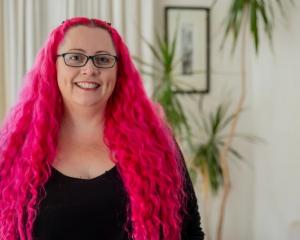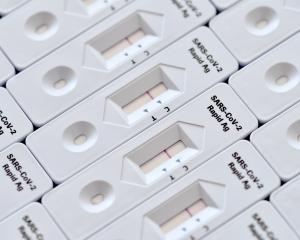One of the eight patients confirmed today as infected with coronavirus arrived in the country after Monday's travel restrictions were imposed.
The woman, aged in her 40s and currently in Canterbury, arrived on Monday from London, the Ministry of Health said.
The seven other new patients arrived from Europe, Sydney, Gold Coast, and North America - there are now 20 total confirmed cases in New Zealand.
The eight new cases today include four in Auckland, two in Waikato and one in Christchurch and Invercargill.
The Christchurch woman arrived in New Zealand on Monday, after the Government's tough restrictions on travellers kicked in from 1am. Every person arriving in the country, with the exception of those from the Pacific, must self-isolate for 14 days.
The Ministry of Health publicly released the patients' flight details this afternoon.
- Covid 19: Busting myths about global pandemic
- Dunedin Fringe Festival cancelled over outbreak
- Stores urge calm over supplies
- Queenstown Covid-19 case: SDHB warning over three locations
- Trade Me restricts 'exploitative' pricing on sanitiser, masks
- Health professionals, elderly first in queue for flu jab
Case number 13: Auckland, male, aged in 50s. Extensive travel through Europe - flight numbers to come.
Case number 14: Auckland, female, aged in 40s. Arrived in Auckland on Monday 9 March from Europe - flight numbers to come.
Case number 15: Auckland, male, aged in 60s. Arrived in Auckland on Friday 13 March from San Francisco on Air New Zealand flight NZ007.
Case number 16: Auckland, male, aged in 60s. Arrived on Thursday 12 March from Canada - flight numbers to come.
Case number 17: Invercargill, male, aged in 40s. Arrived on Thursday 5 March from the Gold Coast - flight numbers to come.
Case number 18: Canterbury, female, aged in 40s. Arrived on Monday 16 March from London - flight numbers to come.
Case number 19: Waikato, female, aged in 20s. Arrived on Sunday 8 March from Sydney - flight numbers to come.
Case number 20: Waikato, female, aged in 70s. Arrived on Sunday 15 March from Europe - flight numbers to come.
The Ministry of Health is yet to reveal flight numbers for all of the new cases.
In self-isolation
"We expected more cases, and it's most important that we identify," and contact close contacts to prevent further spread, Director-General of Health Ashley Bloomfield said in briefing to media this afternoon, joined by the Ministry of Education's Secretary of Education, Iona Holsted.
Bloomfield earlier said he understood all eight new cases were Kiwis returning from overseas. All those he had details on had been in self-isolation. They were aware of the symptoms and did the right thing and became symptomatic, he said.
All eight, as well as a Logan Park High School pupil from Dunedin who tested positive, had their infections detected yesterday - 620 tests were processed.
Asked if the increase in cases proved New Zealand should have been testing more people, Bloomfield said instead it was the case that more people coming from overseas were coming from Covid-19 hotspots. Some had come from Europe, some from Australia and some from the United States.
Information was being sought on how many Kiwis were returning from those areas, but Bloomfield said the numbers were falling quickly as travel dropped off.
He was not aware of any new cases of travellers being placed in forced self-isolation, following the two tourists who had arrived from South-East Asia previously reported.
The new cases reinforced the importance of border restrictions. All were from overseas travel and there was still no evidence of community outbreak, he said.
"These restrictions are not retrospective, but I urge others who have arrived earlier from overseas to voluntarily self-isolate," Bloomfield said.
"Contact tracing will be under way on any relevant flights for those new cases." That covers two seats in all directions.
Healthline will also have the seat numbers and can advise anyone on the flight whether they are considered a close contact.
According to Johns Hopkins University, more than 197,000 cases of Covid-19 have now been confirmed worldwide. The majority of these are now outside China. While just over 7900 people have died, close to 81,000 have recovered.
MEDICAL TESTING
The Ministry of Health announced earlier today that coronavirus testing would be rolled out across the country and would be a routine test given at the same time as the flu test.
The early start to the flu vaccine campaign was announced today. An extra 400,000 are available this year - a 30% increase.
It's most important to protect people who could be hospitalised if they have the flu - that is people over 65 or those with preexisting conditions. They will be the ones prioritised over the next four weeks.
The flu vaccine does not help with Covid-19 but will help keep the strain off the health system.
There are 30,000 swabs for Covid 19 being distributed around the country. Bloomfield did not know the number of ventilators in the country but that information is being collected.
In addition to those in intensive care units, there are ventilators in operating theatres and sometimes in post-operative areas which can potentially be used. However, ventilators are only useful if someone has the right training to use it.
DHBs are working with the Ministry of Health to collate that type of information which is not held centrally.
Stopping elective surgery was one option to make sure there was flexibility in the system. Private hospitals are also being contacted to see what capacity they have if necessary.
Regarding the WHO's advice that paracetamol is preferable to ibuprofen, he said he did not have specific concerns but said the WHO was probably referring to the side-effects of ibuprofen which could be damaging for some older people, unlike paracetamol.
WHEN WILL PANDEMIC PEAK?
Asked if there was modelling advice suggesting community transmission was likely to start early next month and peak in August, Bloomfield said that would be accurate if the disease transmission was thought of as a single wave.
But a new model that had come through overnight looked at what could be done to prevent that peak.
Even if the peak is flattened, the health system's capacity would still likely be exceeded, he said. Instead, it appeared a series of small peaks over a longer period, with stringent controls to ensure the system's capacity was not exceeded, would be the most successful strategy.
"The challenge here...is you need to think about what...we might need to do in two weeks' time, and we do it now." New Zealand had done this well so far as it had been able to look at what had succeeded in other countries and apply it early here.
DUNEDIN SCHOOL CLOSURE
Regarding the closure of Logan Park High School in Dunedin, Bloomfield said the school was working closely with public health officials.
A pupil and his father have coronavirus. The father developed symptoms five days after returning from a trip to Germany.
The boy became symptomatic at the weekend, and attended school on Monday. When his father's test result came back that day, he contacted his son, who went home.
The school, with a role of about 700 pupils, was initially closed for 48 hours but, given there are about 150 close contacts who have self-isolated, and it is the first such case in a school, all 150 of those people will be tested.
Tests won't all be back until Friday, so the school will remain closed until after the weekend.
The school will be carefully cleaned and will not open until cleared by health officials.
All close contacts will still be required to self-isolate for 14 days and will be watched carefully for symptoms over the next fortnight. These steps will help limit the chances of further cases.
TRAVELLER SELF-ISOLATION CHECKS
Police have been visiting a random sample of travellers to check they are self-isolating as required. About 50 people have been visited throughout the country.
Police made contact with 41 people yesterday, and another three are being followed up today as they could not be reached at the time. More visits will be conducted.
Bloomfield said authorities were pleased with the level of compliance and that the restrictions were being taken seriously. He said the Ministry of Health was looking "very carefully" at Australia's plan to stop gatherings of more than 100 people indoors.
He said last night's party was a St Patrick's Day gathering involving uni students. The ministry has given Cabinet further advice around mass gatherings - stopping such gatherings is an important part of preventing community transmission, Bloomfield said.














